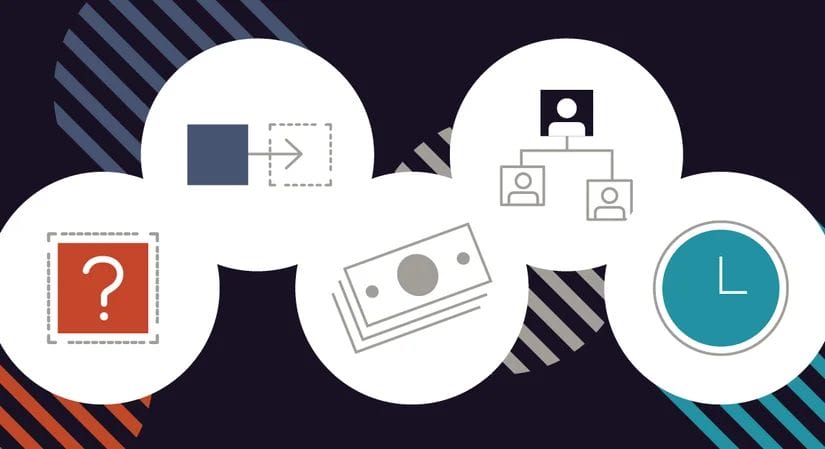
How Does Lead Scoring Transform B2B Sales and Marketing?
- Lead scoring boosts B2B conversion rates.
- It improves sales efficiency & team performance.
- Enhances marketing campaign effectiveness.
- Fosters sales-marketing alignment.
- Demonstrates measurable ROI & gains a competitive edge.
Implementing lead scoring in B2B can revolutionize your business by boosting conversion rates, enhancing sales efficiency and team performance, improving marketing campaign effectiveness, fostering alignment between sales and marketing efforts, and demonstrating a measurable ROI, ultimately giving you a competitive edge in the market.
Lead scoring is a method of evaluating and ranking the quality of sales leads based on their characteristics, behaviors and interactions with your business. It helps you identify which leads are most likely to become paying customers and focus your attention and resources on them. Lead scoring is especially important for B2B businesses, where the sales cycle is typically longer and more complex than in B2C. In this article, we will explore some of the benefits of lead scoring in B2B and how it can help you grow your business.
Higher Conversion Rates
One of the main benefits of lead scoring in B2B is that it can help you increase your conversion rates. By assigning scores to your leads based on their profile fit and level of interest, you can prioritize the leads that are ready to buy and avoid wasting time on those that are not. This way, you can optimize your sales funnel and ensure that your sales team is contacting the right leads at the right time with the right message. According to a study by MarketingSherpa, companies that use lead scoring have a 77% higher conversion rate than those that do not.
Increased Sales Efficiency
Another benefit of lead scoring in B2B is that it can improve your sales efficiency and productivity. By using a lead scoring system, you can automate the process of qualifying and routing leads to your sales team. This reduces the manual work and human error involved in lead management and allows your sales reps to focus on the most promising opportunities. Lead scoring also helps you measure and optimize the performance of your sales team by providing them with clear and objective criteria to evaluate their leads. According to a report by Aberdeen Group, companies that use lead scoring have a 33% higher sales team quota attainment than those that do not.
More Effective Marketing Campaigns
Lead scoring can also benefit your marketing campaigns by enabling you to create more targeted and personalized content for your prospects. By analyzing the behavior and preferences of your leads, you can segment them into different groups based on their score and stage in the buyer’s journey. This allows you to tailor your marketing messages and offers to each segment and deliver them through the most appropriate channels. Lead scoring also helps you track and measure the effectiveness of your marketing campaigns by showing you which ones generate the most qualified leads and revenue. According to a study by DemandGen Report, companies that use lead scoring have a 38% higher win rate than those that do not.
Better Sales and Marketing Alignment
One of the biggest challenges for B2B businesses is to align their sales and marketing teams around a common goal and strategy. Lead scoring can help you achieve this alignment by establishing a shared definition of a qualified lead and a common process for lead generation and nurturing. By using a lead scoring system, both teams can agree on the criteria and thresholds for passing leads from marketing to sales and vice versa. This ensures that both teams are working on the same page and collaborating effectively to move leads through the sales funnel. According to a report by Forrester Research, companies that use lead scoring have a 36% higher customer retention rate than those that do not.
Measurable Return on Investment (ROI) on Lead Generation Efforts
Finally, lead scoring can help you demonstrate the value and ROI of your lead generation efforts. By using a lead scoring system, you can quantify the quality and potential of your leads and link them to your revenue outcomes. This allows you to evaluate the impact of your lead generation activities on your bottom line and optimize your budget allocation accordingly. Lead scoring also helps you identify the best sources, channels and tactics for generating high-quality leads and eliminate those that are not performing well. According to a study by Lenskold Group, companies that use lead scoring have a 17% higher ROI on their marketing spend than those that do not.
Competitive Advantage
Lastly, lead scoring provides a significant competitive advantage in the B2B market. Companies that effectively implement lead scoring systems are better equipped to identify and close deals with high-value customers ahead of their competitors. This gives them an edge in terms of market share, revenue growth, and brand recognition.
Conclusion
Lead scoring is a powerful method for improving your B2B sales and marketing performance. It helps you prioritize, qualify and nurture your leads more effectively, increase your conversion rates, enhance your sales efficiency, create more targeted marketing campaigns, align your sales and marketing teams, and measure and optimize your ROI on lead generation efforts. If you want to reap these benefits, you need to implement a robust lead scoring system that suits your business goals, industry, market and customers. You also need to monitor, test and refine your lead scoring model regularly to ensure its accuracy and relevance. By doing so, you can leverage lead scoring as a strategic tool for growing your B2B business.

